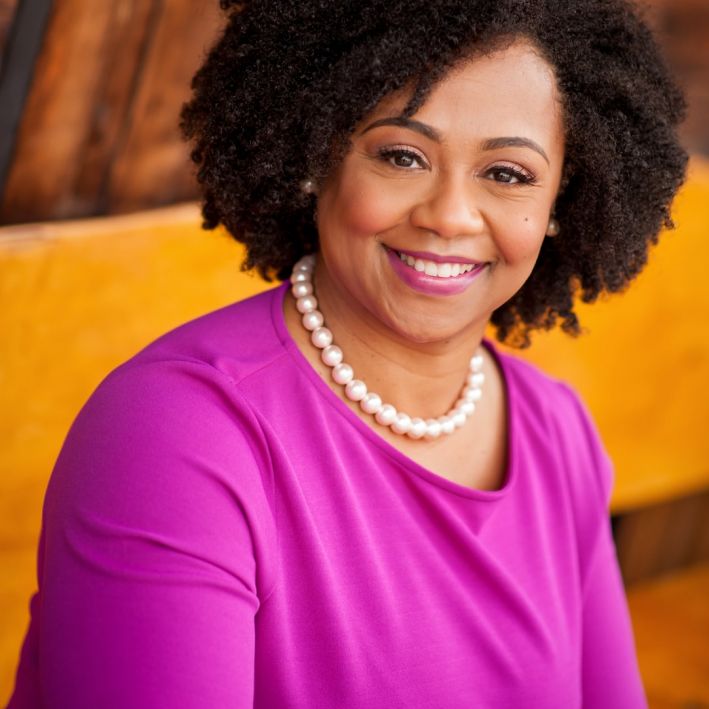Dr. Joy is Helping Black Women Reach Recovery
Her organization, Therapy for Black Girls, connects young women with qualified professionals
Escrito por Lauren O'Shaughnessy

While quality mental health treatment is universally hard to come by, communities of color face far greater barriers to care than white communities.
In addition to exorbitant therapy costs, a lack of accessible educational resources, and few early-intervention programs, they’re up against a healthcare system riddled with racial and cultural biases.
“Research has shown lack of cultural competence in mental health care. This results in misdiagnosis and inadequate treatment,” says NAMI. “African Americans and other multicultural communities tend to receive poorer quality of care.”
Some people — like Dr. Joy Harden Bradford — are working to change that. We spoke with the Therapy for Black Girls founder about the work she’s doing to make quality care more accessible for black women in the U.S.
Tell us about yourself — who are you, where do you live, what do you do?
I am a Licensed Psychologist in Georgia and the creator of the mental health platform, Therapy for Black Girls which includes a therapist directory, podcast, and blog posts. In my clinical work, I focus on helping women recover from breakups.
Why did you decide to become a licensed psychologist?
I have always been a great listener and very interested and curious about human behavior, so I knew that I would do something in a helping profession. I initially thought it would be teaching but after one practicum experience realized that that was not where my gift was.
What is Therapy for Black Girls? What motivated you to start it?
It continues to evolve but started with me writing blog posts about mental health topics. I was motivated to start it because I wanted a space where mental health felt very relevant and accessible to Black women. It has now grown to include a therapist directory of over 900 therapists across the country who are committed to providing quality therapy to Black women and girls across the country and to the weekly podcast episodes where we share info about mental health topics.
What barriers do black women face when it comes to their mental health?
Cost and access can be very real barriers when attempting to seek treatment. Sometimes therapists in a particular area are not covered by health insurance, sometimes clients don’t have insurance, many community health offices are either overbooked or have been closed down, and there can also be difficulty finding therapists who clients feel like would be a good fit for them.
How can modern healthcare systems fight racial bias and better service communities of color?
I think there needs to be more funding for mental health services and I think that there needs to be more training for therapists about how their biases and privileges can impact the therapeutic relationship.
What role does the internet play in the mental health movement? How do you see it changing the ways people discuss their conditions and find help?
I have seen a huge shift in people talking more openly about the fact that they have a therapist. I think this goes a long way in reducing the stigma related to seeking help and helps people realize the wide variety of reasons someone might go to therapy.
What recommendations do you have for women who want help, but don’t know where to start?
I would recommend talking to a trusted friend or loved one about how you’re feeling and asking for help in either finding a therapist or getting connected to other resources that might be helpful for you. Lots of therapists have websites now where you can read more about them and how they work and maybe even see pictures of their office which can go a long way in helping you realize whether someone might be a good fit for you.
What closing remarks/advice would you give to someone reading this?
Going to meet with a therapist can be helpful for lots of different reasons. You do not have to be in a crisis to go to therapy. Talking to an objective person about ways you’d like to grow and change can be very valuable.
To keep up with Dr. Joy, follow her on Instagram or check out the Therapy for Black Girls’ website.
Sobre el autor
Lauren is the editorial director and cofounder at the Made of Millions Foundation. She has been a part of the team since its launch in 2016. She has been open about her personal struggles with Generalized Anxiety Disorder and social phobia. You can follow her on Instagram at www.instagram.com/internet_lauren.
Apoya nuestro trabajo
Nuestra misión es cambiar la manera en que el mundo percibe la salud mental.



















